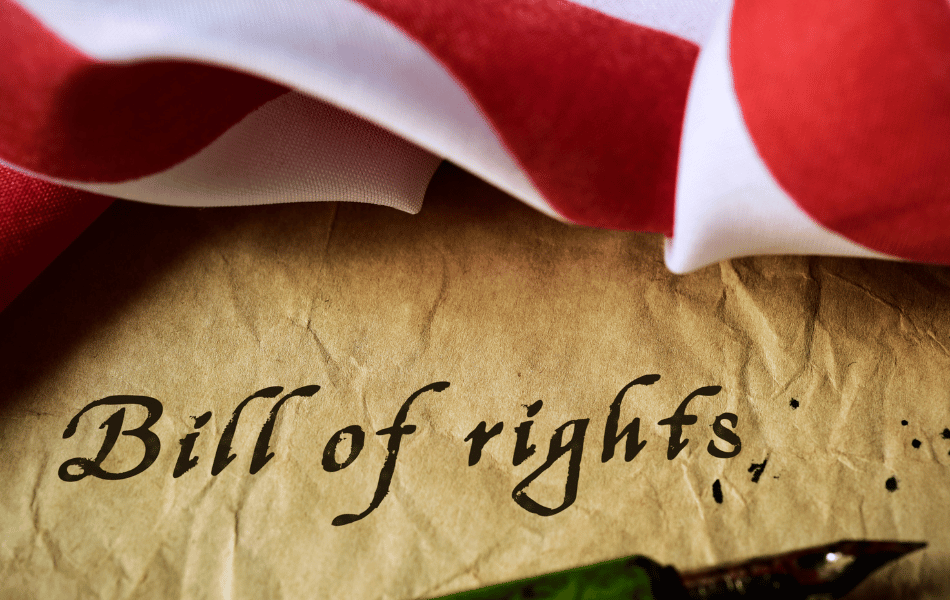The Bill of Rights refers to the first ten amendments to the United States Constitution. It was added to the Constitution shortly after its ratification in order to address concerns raised by the Anti-Federalists, who felt that the original Constitution did not sufficiently protect individual rights and liberties. The Bill of Rights was ratified on December 15, 1791.
The Bill of Rights serves as a crucial part of the U.S. Constitution, safeguarding the rights and freedoms of the American people. It is especially important to understand the Bill of Rights in any criminal defense case. It outlines specific protections and limitations on government power, ensuring that individuals are granted certain fundamental rights that the government cannot infringe upon. These rights include freedoms of speech, religion, press, assembly, and petition, as well as protections against unreasonable searches and seizures, the right to bear arms, the right to a fair trial, and more.
The amendments within the Bill of Rights include:
- First Amendment: Protects freedoms of speech, religion, press, assembly, and petition.
- Second Amendment: Protects the right to bear arms.
- Third Amendment: Prohibits the quartering of soldiers in private homes during peacetime.
- Fourth Amendment: Guards against unreasonable searches and seizures, requiring warrants based on probable cause.
- Fifth Amendment: Ensures due process, protection against self-incrimination, and safeguards against double jeopardy.
- Sixth Amendment: Guarantees the right to a fair trial, including the right to legal counsel and a speedy public trial by an impartial jury.
- Seventh Amendment: Preserves the right to a jury trial in civil cases involving certain disputes.
- Eighth Amendment: Prohibits cruel and unusual punishment and excessive bail or fines.
- Ninth Amendment: Recognizes that the rights of the people extend beyond those specifically listed in the Constitution.
- Tenth Amendment: Affirms that powers not delegated to the federal government are reserved for the states or the people.
The Bill of Rights remains a cornerstone of American democracy and is often referred to when defending those accused of a crime in the United States as it protects individual liberties and ensures that the government operates within defined boundaries. It reflects the principles of individual freedom, limited government, and the balance of power that are fundamental to the U.S. legal system.
If you are under investigation or have been charged with a crime, please call our office to speak with an experienced criminal defense attorney who will protect and defend your rights under the Constitution and the Bill of Rights of the United States of America.

